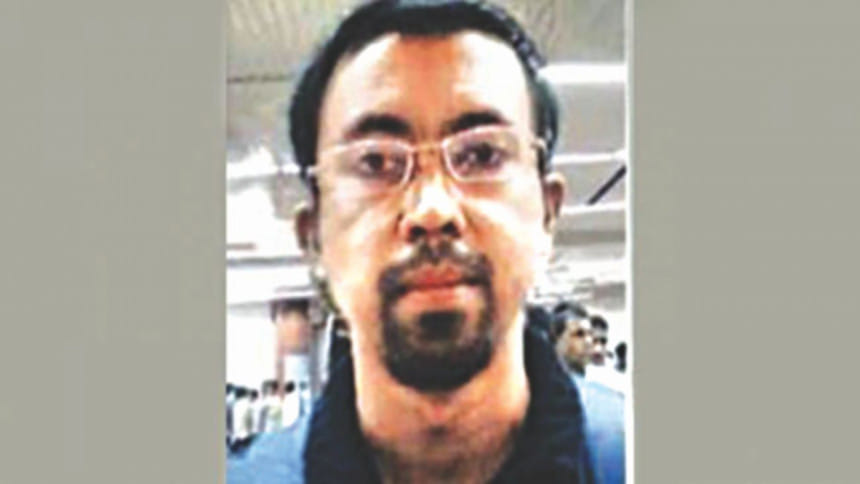Most cunning of the lot

Tamim Ahmed Chowdhury had entered Bangladesh in 2013 and subsequently took it upon himself to coordinate "Neo JMB" -- a militant group far more radical and terrifying than the original Jama'atul Mujahideen Bangladesh (JMB).
The "Neo JMB" is inspired by the ideology of Islamic State, skilled in modern technology and equipped with sophisticated firearms. It carried out series of attacks across the country.
Canadian citizen of Bangladesh descent and the operation commander of the "Neo JMB", he was one of the masterminds of the Holey Artisan Bakery attack in Gulshan on July 1 and the Sholakia Eid congregation attack in Kishoreganj on July 7, according to law enforcers.
Tamim was considered the most "intelligent and cunning" leader of the group.
A long-time resident of Calgary in Canada, his company consisted of people who had joined the Islamic State (IS). Many of his "friends" even went to Syria where the terror group controls territories.
He was deemed so dangerous that religious leaders in Windsor, Canada, had asked him in 2013 not to mingle with youths at mosques there, fearing he might radicalise them.
Amarnath Amarasingam, a fellow at the George Washington University's programme on extremism, who also co-directs a study on Western foreign fighters at the University of Waterloo in Canada, first learnt about Tamim in 2015 while investigating jihadists in Windsor.
He interviewed friends of a jihadi named Ahmad Waseem, also known as Abu Turab, who returned to Canada after being injured in fighting in Syria.
Tamim's name popped up then. He was thought to have left for Syria. Although when exactly he left was uncertain.
A friend of Waseem told Amarnath that Tamim, facing "harassment" from law enforcement agencies in Canada, had decided to simply move back to his ancestral home in Bangladesh.
Since then, he had been recruiting youths, radicalising them and masterminding ruthless attacks, according to law enforcers.
Investigators say Tamim accompanied the five Holey Artisan Bakery attackers from their Bashundhara flat to Gulshan and left the area after bidding them farewell just before the café siege began around 8:40pm on July 1.
It was Tamim who was guiding the nine militants killed in a raid at Kalyanpur on July 26, law enforcers said.
The chapter of the dreaded militant ended yesterday after he along with his two accomplices was killed in "Operation Hit Strong 27" in Narayanganj.
The relatives of Tamim in Sylhet refused to receive his body. "I feel disgusted that he is my nephew … We do not want to receive his body," Tamim's uncle Nurul Islam Chowdhury told the UNB news agency.
Tamim, an accused in the case filed with Mirpur Police Station over the Kalyanpur incident, received the attention of Bangladeshi law enforcers last year even though he landed here on October 5, 2013.
He used to frequent the Kalyanpur den and have meetings with the militants and give them motivational speeches, according to the case statement.
Tamim and other accused in the case also provided the militants with financial support, firearms, ammunition and explosives and also trained them.
Investigators believe Tamim led the operational wing of "Neo JMB".
JMB operatives, who became inactive after Mawlana Saidur Rahman took over as the chief following Abdur Rahman's execution in 2007, formed the Neo JMB, law enforcers say.
Identifying himself as Shaykh Abu Ibrahim Al-Hanif, Tamim, in an interview with IS mouthpiece Dabiq magazine, had said he was the "Amir of the Khilafah's soldiers in Bengal".
However, the government rules out any organisational presence of IS in Bangladesh.
Tamim in a Dabiq issue reportedly claimed that a section of Shibir, the pro-Jamaat-e-Islami student body, is working for his group in Bangladesh.
Tamim's father Shafi Ahmed Chowdhury, who was a shipping officer in Chittagong, moved to Canada along with his family after the Liberation War in 1971.
Before 2013, Tamim along with his family had come to Bangladesh in 2001 and stayed for around three months.
Tamim's cousin Tazim Ahmed Chowdhury had earlier said Tamim was married and has three children.
According to the international media, Tamim was previously a resident of Windsor, Ontario in Canada. He is in his mid-30s. A few people knew him from the local mosque and from other social circles.
Abdus Salam, chairman of Dubag union, Tamim's ancestral home, claimed that Tamim's family was associated with Jamaat politics and his late grandfather Abdul Majid Chowdhury was a "helping hand" of Peace Committee, an anti-liberation force, during the Liberation War.

 For all latest news, follow The Daily Star's Google News channel.
For all latest news, follow The Daily Star's Google News channel. 



Comments